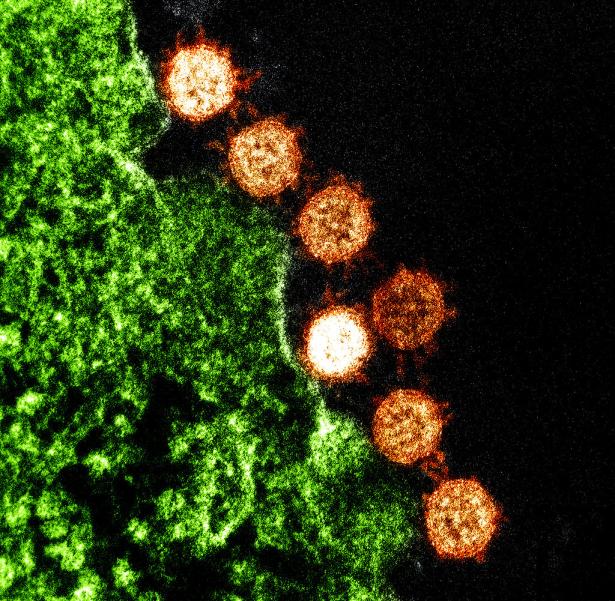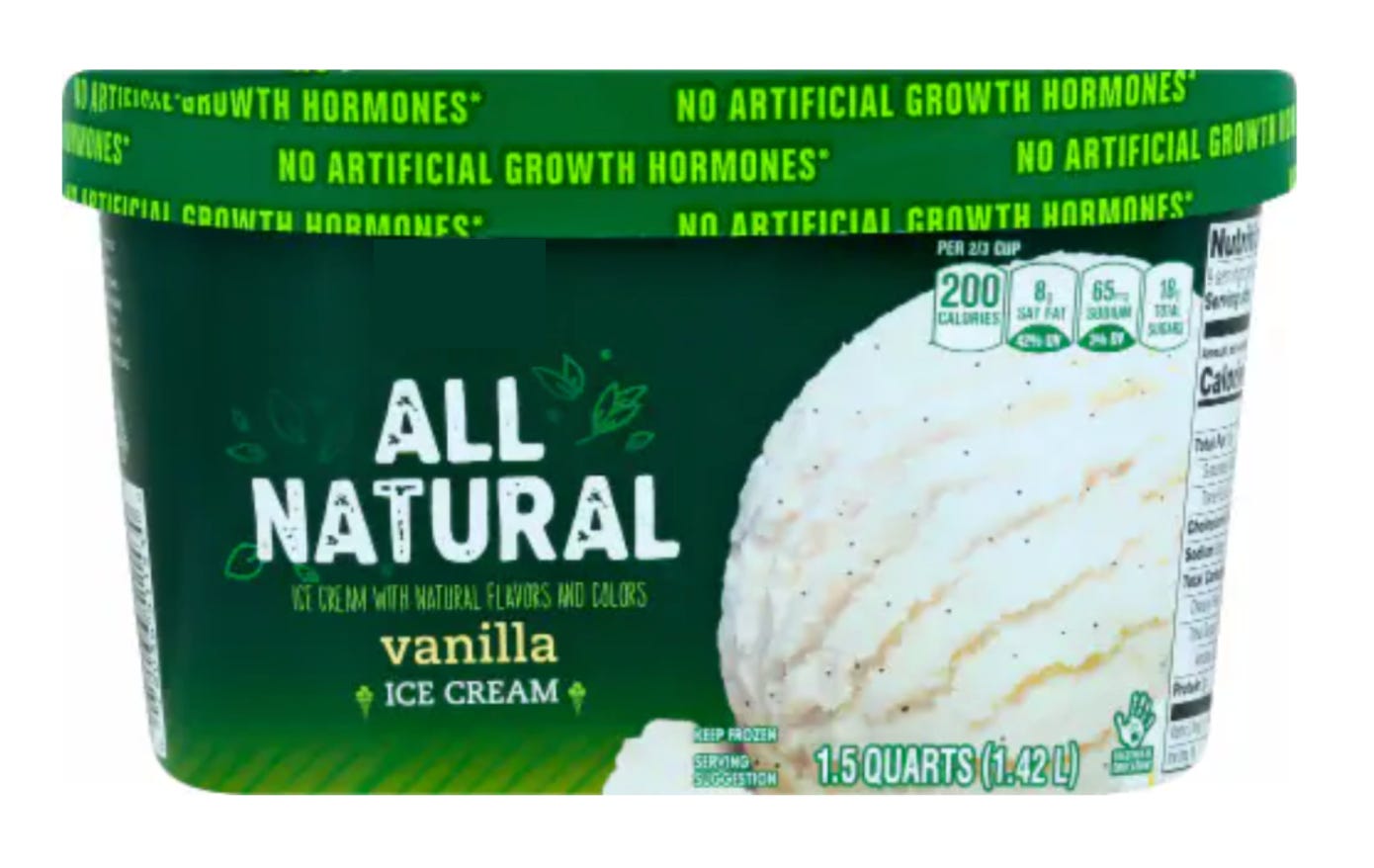RFK Jr.’s hearing for Health and Human Secretary of the United States is soon. A recent poll showed that 40% of Americans view him positively. Despite the myriad fringe beliefs he has espoused, such as that HIV doesn’t cause AIDS or Wi-fi causes cancer, his message has resonated with many Americans. Why?
We wager there are three main reasons:
-
Unknown past: Many people don’t know about his past positions and more fringe ideas.
-
Hitting a nerve: He’s placing heightened focus on problems many Americans care about (e.g., the rise of chronic disease), seems willing to push back against the food industry, and has tapped into the frustrations many Americans have with health institutions.
-
Appeal to nature fallacy: Many of his messages are packaged in a highly appealing narrative that the marketing industry has burned into our brains: “Natural things are good for us, and unnatural things are bad.”
While YLE has already focused on the first two, the appeal to nature fallacy deserves space as Congress evaluates RFK Jr.’s eligibility to run a $1.8 trillion agency and far-reaching public health policy. Wellness marketing has made this idea extremely popular, but as a public health policy, it is overly simplistic, biased against technological advances, and can potentially harm our health.
The appeal to nature fallacy
Many of RFK’s health ideas center around a central theme: downplaying natural threats (including germs), and emphasizing that unnatural (human-made) things are the real problem. In his recent book, he laments that “germ theory”—the idea that germs cause disease—has dominated over the competing 19th-century “miasma theory,” which he defines as “preventing disease by fortifying the immune system through nutrition and by reducing exposures to environmental toxins and stresses.” In this light, RFK’s various and seemingly disparate ideas start to fit a pattern:
Natural things are good (or not that big of a problem):
-
As HHS secretary, he wants to take an 8-year break from studying infectious microbes (seeming to imply these naturally occurring germs are not a pressing threat)
-
Promotion of raw milk (more “natural” than pasteurized milk)
-
Suggestion that HIV (a naturally occurring virus) isn’t the true cause AIDS, rather drug use is actually to blame
Unnatural (human-made) things are the problem:
-
As HHS secretary, he wants to take an 8-year break from drug development (drugs are “human-made”).
-
Claim that Wi-fi (human-made) causes cancer
-
Claim that antidepressants (human-developed drugs) promote mass shootings
-
Claim that anti-viral drugs for HIV killed people
-
Claim that fluoride in water is bad (even though fluoride is a naturally-occurring mineral, it’s been branded as a “chemical” which many people erroneously view as “unnatural”)
-
Claim that vaccines (human-made) are not safe
Of course, there are some exceptions to this pattern. (For example, he promoted ivermectin and hydroxychloroquine, both of which are human-made drugs). And in some cases, he correctly identifies human-made things that really are problematic. (For example, he correctly states that sugary, ultra-processed drinks like soda are not healthy; there is solid evidence they contribute to obesity).
The appeal to nature fallacy is very popular in American culture. It’s an easy logical error to make—so many good things come from nature (plants, oceans, food, medicines) that it’s easy to think that all natural things must be good for us. In a world where health information is confusing and oftentimes contradictory, it makes things simple: stick to what is “natural.” And many times, it’s correct: fresh fruits and vegetables are very good for us, and breathing industrially polluted air is not.
But a quick step back makes it clear this overly simplistic metric doesn’t always hold up. Infectious diseases are natural, and they kill people. Many antibiotics are “human-made,” and they save countless lives. Tobacco is natural but not good for us. And vilifying “human-made” things means vilifying technological advances that genuinely help people, like new drugs to treat cancer.
Even more confusing, “natural” versus “unnatural” is often an arbitrary distinction, and many medical interventions are a blend of both. For example, naturally occurring antibiotics like penicillin are purified using human-made technology so that people don’t have to eat mold, and vaccines are human-made technology that rely on people’s natural immune defenses to fight off infections but give them a shortcut for doing it.
Unfortunately, marketing strategies that want us to buy, not think, have burned this “natural is always better” narrative into our minds. “All natural” labeling is included on food, beauty products, and supplements to try to convince us that their product is healthier so that we will buy it.
Doesn’t this ice cream almost seem healthy?
So what’s the big deal?
The rise of chronic diseases in American is a major health crisis that must be addressed. But to make changes that truly benefit America’s health, it’s critical that we correctly identify what factors are actually driving the problems.
RFK’s strong leaning toward the appeal to nature fallacy, to the point where he would rather campaign against Wi-fi than give an HIV patient medicine that will save their life, does not bode well for consistently diagnosing the root causes of America’s health problems.
The cost of getting it wrong
The appeal to nature fallacy sometimes gets it very right, but other times is dangerously wrong. We need health policy that does better than this—that recognizes naturally occurring threats and doesn’t attack human-made interventions that are actually helping.
-
Biosecurity threats: Health policy that fails to recognize the threat of naturally-occurring infectious disease leaves our nation open to biosecurity threats, limiting our technical capacity to identify and respond to new outbreaks. RFK has already cast doubt on vaccines in development for bird flu.
-
Wasted taxpayer money: Research funds should go to the most promising hypotheses with data to back them, whether or not the root causes and solutions are “natural” or involve human-created technology or drug development. If millions of NIH research dollars are thrown at the wrong hypotheses, it will cost a lot of money without much progress.
-
Brain drain: If RFK truly decides to stop funding drug development and infectious disease research as he has stated, the U.S. will start to lose scientists who have the knowledge and capacity to do this type of research and train others.
-
Increased healthcare costs: While RFK Jr. has claimed he’s not going to take away vaccines, efforts to undermine childhood vaccination (either through changing regulations or sowing distrust) will also increase healthcare costs substantially, as childhood vaccines have saved an estimated $540 billion dollars in direct costs alone over the last 30 years by preventing illness, hospital stays, not to mention missed school and work days.
-
Americans don’t get healthier: Of course, the biggest cost of failing to correctly diagnose America’s health problems is that the root causes are not adequately addressed, and we fail to find solutions that actually help.
A health policy underpinned by a logical fallacy doesn’t easily change its mind when it’s wrong. This is personally my biggest concern about RFK as HHS secretary—he has a track record of sticking to opinions, even when clearly shown evidence that’s not the case. For example, he continues to repeat the three-decade old rumor that vaccines cause autism, even though this has now been studied in over a million children and found to be false. If data show some of his policies for America’s diet or chronic diseases aren’t working, instead of changing his mind he may dig in his heels. Even more concerning, he has suggested that the attorney general should file racketeering lawsuits against journals editors who make retraction decisions he doesn’t agree with. Having the government dictate what scientific journals publish via legal intimidation does not bode well for scientific accuracy, effective health policy, or free speech.
Bottom line
Sometimes “all natural” is far better, but other times nature tries to kill us. We need health policy guided by data that recognizes the harms of both sugary drinks and infectious threats; Americans shouldn’t have to choose.
Sincerely, KP
Kristen Panthagani, MD, PhD, is a resident physician and Yale Emergency Scholar, completing a combined Emergency Medicine residency and research fellowship focusing on health literacy and communication. In her free time, she is the creator of the medical blog You Can Know Things and author of YLE’s section on Health (Mis)communication. You can subscribe to her newsletter or Substack. Views expressed belong to KP, not her employer.
Your Local Epidemiologist (YLE) is a public health newsletter with one goal: to “translate” the ever-evolving public health science so that people feel well-equipped to make evidence-based decisions. This newsletter is free to everyone, thanks to the generous support of fellow YLE community members. To support the effort, subscribe or upgrade here.



Spread the word